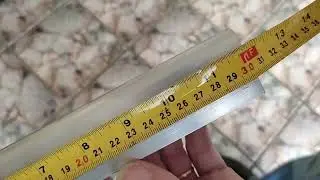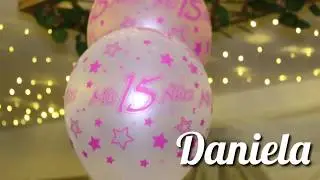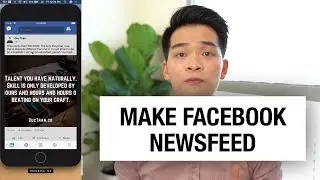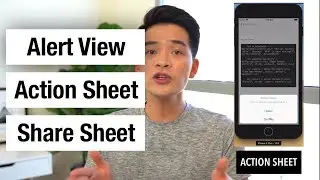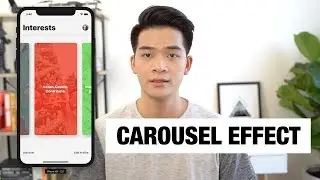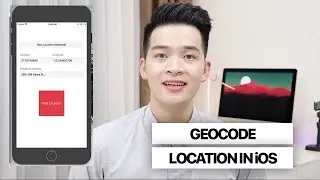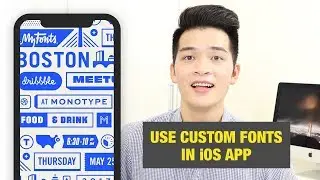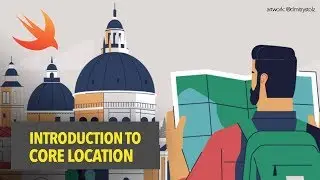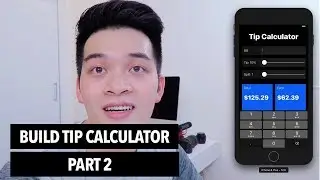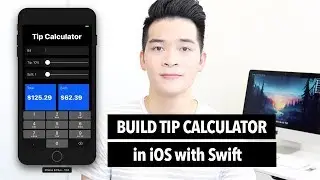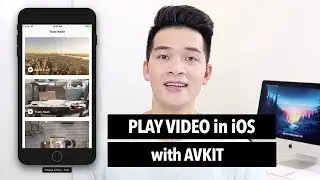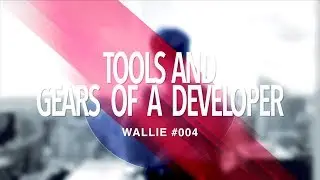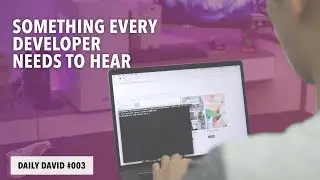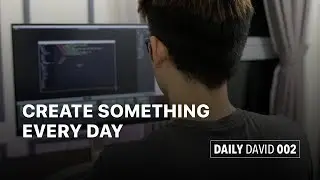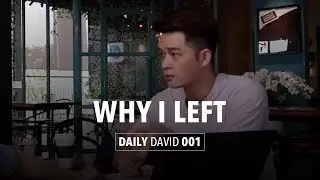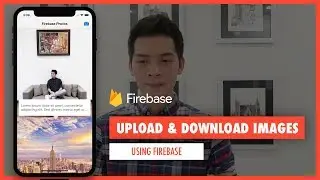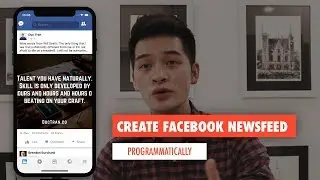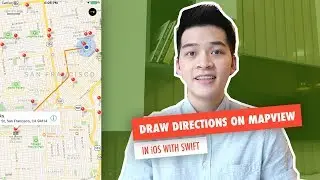SWIFT PROGRAMMING TUTORIAL: OPTIONAL IN SWIFT PT 1/4
JOIN THIS COURSE FOR FREE: https://ductran.co/p/optional-swift
As a programmer, it is our main job to deal with data: store, process, manipulate, share data.
This is what you do when building a social network apps to allow users share photos and videos. It's the games you create with beautiful animation, graphics and stories.
Data comes in many forms. And as a developer, we all have to deal with a situation when data is not available.
It means that we have something to store but that thing is nothingness.
That's why in Swift, we have a different "layer" of data type - Optional type.
It means that the type can store nothingness - empty data.
In this course, you'll learn:
What is Optional and why we use Optional in Swift
How to create, and use Optional with unwrapping
Optional binding to safely unwrap optionals
Optional chaining
JOIN THIS COURSE FOR FREE: https://ductran.co/p/optional-swift
*********
ABOUT CODE MASTERY
*********
Code Mastery is hosted by Duc Tran, founder of Developers Academy.
This is his free-style no notes, no teleprompter presentation and live coding broadcast with you guys everyday.
To join Duc's free courses, register for free at http://ductran.co/
*********
MEET DUC TRAN
*********
Duc Tran is founder of Developers Academy, one of the world's leading iOS, Android and Web development trainers.
More than 2,000,000 developers have studied his video trainings; 100,000 developers see his posts each month. Each year, Duc has helped 20,000 plus developers graduate from his online courses or video series.
*********
FREE TRAININGS IN IOS DEVELOPMENT
*********
To subscribe and get free tutorials, courses and weekly content, visit me at: http://ductran.co/
Connect with Duc on facebook: / ductranfan
Tweet him: / ductrongtran
Get daily inspiration: / ductran.co
*********
SOURCE CODE IN THIS COURSE
*********
import UIKit
// 2.1 Introduce Optional
class GameViewController {
var questionLabel: UILabel?
var question: String
init(question: String, questionLabel: UILabel?) {
self.question = question
self.questionLabel = questionLabel
}
func viewDidLoad() {
// questionLabel!.text = question // this can crash
if questionLabel != nil {
questionLabel!.text = question
} else {
questionLabel = UILabel(frame: CGRect(x: 0, y: 0, width: 200, height: 40))
questionLabel!.text = question
}
}
}
let gameVC = GameViewController(question: "What is 5+5?", questionLabel: nil) // this means there's no label created
gameVC.viewDidLoad()
// 2.2 Optional Binding (if-let)
// introduction to Dictionary in Swift
var states: [String : String] = [
"CA" : "California",
"LA" : "Los Angeles",
"PA" : "Pennsylvania",
"WA" : "Washington",
"MA" : "Massachusetts"
]
let ca = states["CA"]
let la = states["LA"]
let pa = states["PA"]
// but nil:
let ny = states["NY"]
let tx = states["tx"]
let key = "CA"
let state = states[key]
print("\(key) is \(state)")
if let caState = states[key] {
print("\(key) is \(caState)")
} else {
print("Ooops. There's no state matching this key")
}
// another example:
var weatherForecast : [String : [String : Int]] = [
"today" : [
"temperature" : 92,
"humidity" : 98,
"rain" : 82
],
"tomorrow" : [
"temperature" : 72,
"humidity" : 12,
"rain" : 99
]
]
if let todayWeather = weatherForecast["today"] {
if let temperature = todayWeather["temperature"] {
print("today's temperature is \(temperature)")
}
}
// 2.3 Code Challenge
if let tomorrow = weatherForecast["tomorrow"] {
if let rain = tomorrow["rain"] {
print(rain)
}
}
var programs = [
"Total iOS Blueprint" : ["Swift", "Build Foursquare"],
"Socialize Your Apps" : ["Build Facebook", "Build Messenger"]
]
if let tibCourses = programs["Total iOS Blueprint"] {
print(tibCourses[0])
}
// 2.4 Downside of if-let, introduce guard let syntax
var weatherForecast1 = [
"today" : [
"temperature" : 92,
"humidity" : 98
],
"tomorrow" : [
"temperature" : 72,
"rain" : 99
]
]
typealias WeatherDictionary = [String : [String : Int]]
struct CurrentWeather {
var temperature: Int
var humidity: Int?
var rain: Int?
}
// 1. Downside of if-let
func processWeather(for date: String, from weatherDictionary: WeatherDictionary) - CurrentWeather? {
if let today = weatherDictionary[date] {
if let temp = today["temperature"], let humidity = today["humidity"], let rain = today["rain"] {
return CurrentWeather(temperature: temp, humidity: humidity, rain: rain)
} else {
return nil
}
} else {
return nil
}
}
func processWeather2(for date: String, from weatherDictionary: WeatherDictionary) - CurrentWeather? {
guard let today = weatherDictionary[date], let temp = today["temperature"] else {
return nil
}
return CurrentWeather(temperature: temp, humidity: today["humidity"], rain: today["rain"])
}
// 2.5 Code Challenge
var fourSquareDatabase = [
"nearBy" : [
"1m" : ["Starbucks", "Apple Bees"],
"5m" : ["Red Lobster", "Sunny Cafe"]
]
]
Watch video SWIFT PROGRAMMING TUTORIAL: OPTIONAL IN SWIFT PT 1/4 online, duration hours minute second in high quality that is uploaded to the channel David Tran 17 June 2017. Share the link to the video on social media so that your subscribers and friends will also watch this video. This video clip has been viewed 1,251 times and liked it 15 visitors.
